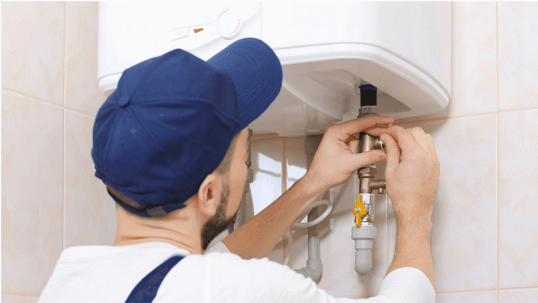Identifying Common Heater Problems
Identifying Common Heater Problems
Blog Article
We've come across this great article involving Common Problems with Tank Water Heaters down the page on the internet and think it made good sense to relate it with you on this page.

Think of starting your day without your routine hot shower. That already establishes an inadequate tone for the remainder of your day.
Every house needs a dependable water heater, yet just a few understand how to take care of one. One simple way to maintain your water heater in top form is to check for mistakes frequently and repair them as soon as they show up.
Remember to switch off your water heater prior to smelling around for mistakes. These are the water heater faults you are more than likely to experience.
Water also hot or as well chilly
Every hot water heater has a thermostat that identifies exactly how hot the water gets. If the water entering into your house is also warm in spite of setting a practical maximum temperature, your thermostat could be defective.
On the other hand, also cold water may be because of a failed thermostat, a busted circuit, or improper gas circulation. As an example, if you utilize a gas hot water heater with a busted pilot light, you would get cold water, even if the thermostat remains in perfect problem. For electrical heating units, a blown fuse may be the culprit.
Insufficient hot water
Water heaters can be found in lots of sizes, relying on your warm water demands. If you run out of warm water before everyone has had a bath, your water heater is also little for your family size. You need to think about mounting a larger water heater container or choosing a tankless hot water heater, which occupies less space as well as is extra durable.
Unusual sounds
There go to the very least 5 sort of sounds you can hear from a water heater, however the most typical interpretation is that it's time for the water heater to retire.
Firstly, you must recognize with the typical seems a water heater makes. An electrical heater may appear different from a gas-powered one.
Popping or banging sounds normally mean there is a piece of debris in your tanks, and it's time to clean it out. On the other hand, whistling or hissing sounds may merely be your shutoffs letting some stress off.
Water leaks
Leakages might come from pipes, water connections, valves, or in the worst-case situation, the storage tank itself. Gradually, water will certainly rust the storage tank, as well as find its way out. If this takes place, you need to replace your hot water heater as soon as possible.
Nevertheless, prior to your change your entire tank, make sure that all pipelines remain in place and that each valve works completely. If you still require aid recognizing a leakage, call your plumber.
Rust-colored water
Rust-colored water means one of your water heater components is corroded. It could be the anode pole, or the container itself. Your plumber will certainly have the ability to determine which it is.
Warm water
Regardless of how high you set the thermostat, you will not obtain any type of hot water out of a heater well past its prime. A hot water heater's effectiveness may lower with time.
You will certainly also obtain warm water if your pipes have a cross link. This implies that when you activate a faucet, warm water from the heating unit flows in alongside normal, cold water. A cross link is simple to spot. If your warm water taps still pursue shutting the water heater valves, you have a cross link.
Discoloured Water
Rust is a major root cause of unclean or discoloured water. Deterioration within the water container or a falling short anode rod might cause this discolouration. The anode pole safeguards the tank from rusting on the inside as well as should be examined annual. Without a rod or an appropriately operating anode pole, the hot water rapidly rusts inside the storage tank. Call a professional hot water heater technician to identify if replacing the anode rod will take care of the issue; otherwise, change your water heater.
Verdict
Preferably, your water heater can last 10 years before you require an adjustment. Nonetheless, after the 10-year mark, you might experience any one of these faults extra on a regular basis. At this point, you need to add a brand-new water heater to your budget plan.
How To Troubleshoot 3 Common Water Heater Problems in Twin Cities
The Water Heater Is Leaking
A leaky cold water inlet valve A loose pipe fitting A leaky temperature and pressure relief valve A corroded anode rod A cracked tank Turn Off Your Water Heater:
Shut off your gas water heater by turning the gas valve on the unit to the “OFF” position. Shut off your electric water by switching its power off at your electrical panel. Look for a two-pole breaker labeled “water heater” and turn it to the “OFF” position. Move the ball valve connected to the water heater to be perpendicular to the piping at a 90° angle. Look for the Leak:
Depending on whether the water is coming from the tank's top or bottom, you’ll want to look for the leak in different locations.
If the leak comes from the top of the tank, carefully look for water escaping from the cold water inlet valve or loose pipe fittings. Rusted hot and cold water valves can have loose connections with the tank, with water leaking out of them.
https://mspplumbingheatingair.com/blog/how-to-troubleshoot-3-common-water-heater-problems
I ran across that post on Common Problems with Your Home Water Heater when doing a search on the internet. Are you aware of anybody else who is looking into the subject? Please feel free to share it. We take joy in reading our article about Common Problems with Your Home Water Heater.
Contact Us Now Report this page